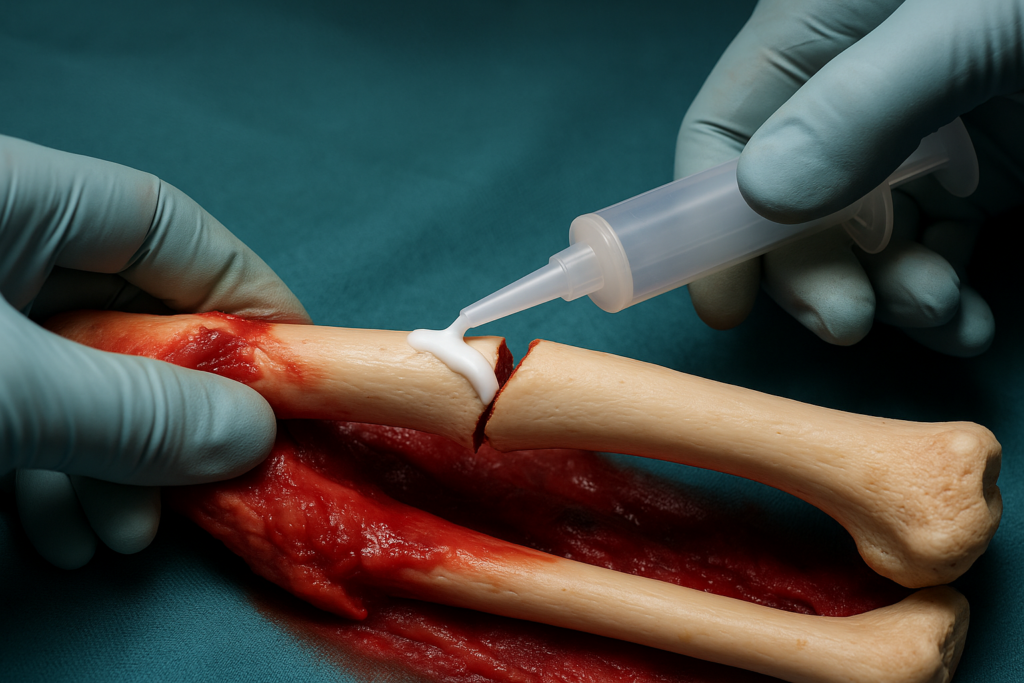In a gleaming laboratory in eastern China, researchers have drawn inspiration from an unlikely source: the humble oyster. Their discovery, a biomedical adhesive dubbed Bone-02, promises to repair broken bones in as little as three minutes — a breakthrough that could redefine modern orthopedic care.
From Oyster Shells to Operating Rooms
The innovation emerged at Zhejiang University’s Sir Run Run Shaw Hospital, where surgeons and materials scientists were struck by how oysters anchor themselves to wet, slippery surfaces. Translating that natural mechanism into a medical tool, they engineered a glue capable of binding fractured bones under the most challenging conditions: blood, fluid, and fragmented tissue.
“Traditional plates and screws are invasive and require secondary surgery,” said Dr. Chen Wei, one of the lead researchers. “Our adhesive provides stability without metal, allowing the body to heal more naturally.”
A Three-Minute Miracle
In controlled trials, Bone-02 demonstrated unusual strength: shear resistance exceeding half a megapascal and compressive strength comparable to natural bone. Applied directly to fractured sites, it stabilizes shattered fragments within minutes — even in complex comminuted fractures, where bones break into multiple pieces.
The adhesive is bioresorbable, meaning it gradually dissolves as new bone tissue regenerates, eliminating the need for future hardware removal. For patients, that could mean smaller incisions, less trauma, and faster recoveries.
Lives Already Changed
More than 150 patients in China have already received the treatment. One young factory worker with a severely shattered wrist faced the prospect of extensive surgery and months of limited mobility. Instead, surgeons used Bone-02 through a two-centimeter incision; within three months, he had regained full function with no complications.
“These cases prove what was once a laboratory concept can change lives in operating theaters,” said Dr. Liu Hong, an orthopedic surgeon involved in the trials.
Promise and Caution
For all its potential, Bone-02 remains under scrutiny. Orthopedic experts note that long-term outcomes are still untested: Will the adhesive hold firm after years of daily strain? Will it perform equally well in older patients with brittle bones? International adoption will also require rigorous peer-reviewed studies and regulatory approval.
Yet the excitement is palpable. If the adhesive continues to perform, it could one day replace metal plates and screws worldwide, sparing millions of patients from invasive surgeries and repeat procedures. Chinese scientists have developed Bone-02, an oyster-inspired adhesive that can mend broken bones in minutes. Early trials suggest it could transform orthopedic care, though questions remain about its long-term resilience.


